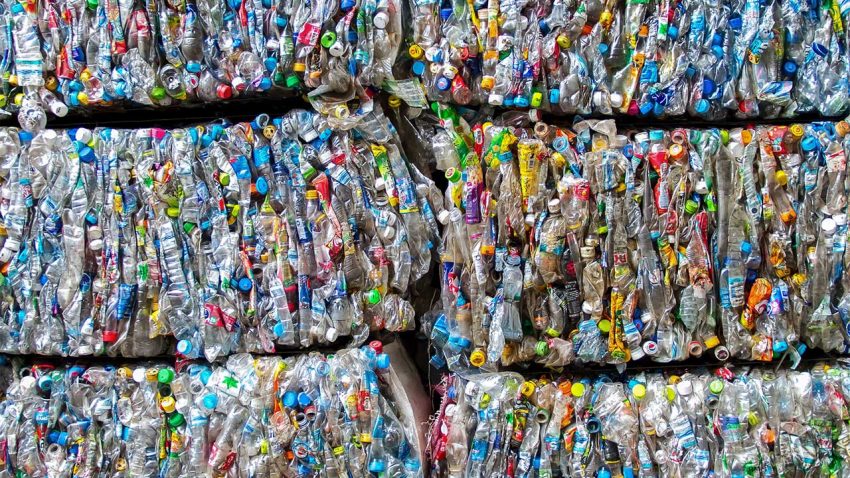

Repurposed catalysts may help turn plastic trash into liquid fuels. (OperationShooting/iStockphoto)
Milk cartons, toys, grocery bags, bubble wrap, machine parts, and even artificial hips. Every year, humanity makes more products from polyethylene than any other plastic, about 100 million metric tons in all. We also throw a lot of it away. Polyethylenes make up about 60% of the plastics in landfills worldwide, where they degrade slowly if at all. Now, researchers report that they’ve repurposed a pair of existing catalysts to break down a wide array of polyethylenes, converting them into liquid fuels and other valuable chemicals. Faster and more durable versions of the catalysts are in the works, and they could spur recycling efforts that prevent millions of tons of the plastics from clogging our landfills and swirling around the world’s oceans...
As the name suggests, polyethylenes are made of many copies of ethylene, a simple hydrocarbon building block with two carbon atoms surrounded by four hydrogens. Catalysts connect millions of these ethylenes into long chains, which can be linear or branching, affecting the rigidity, toughness, and density of the finished products. In most cases, the final polyethylenes are inert and stubbornly resistant to breakdown.
That durability stems from a simple fact: All the links between atoms are single bonds, which are highly stable and difficult to break, explains Zhibin Guan, a chemist at the University of California, Irvine, who helped lead the new effort. To change that, Guan and his colleagues teamed up with researchers led by chemist Zheng Huang at the Chinese Academy of Sciences in Shanghai to repurpose two existing catalysts. These catalysts, developed by University of North Carolina, Chapel Hill, chemist Maurice Brookhart and colleagues, are normally used to link short hydrocarbons, called alkanes, together into longer—and more valuable—hydrocarbon chains, such as those found in diesel fuel.
Click to read the whole story...

86-10-68597521 (day)
86-10-68597289 (night)

52 Sanlihe Rd., Xicheng District,
Beijing, China (100864)

